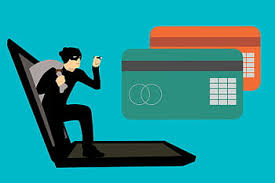
These are a few of the highlights in our webinar: Who’s Snooping on Your Online Business Transactions? | Online Security Tips.
There was an interesting experimental study performed in the UK whereby journalists gave a team of ethical hackers the challenge of hacking into one of their bank accounts specifically wanting to know how long it would take them. The result of the study revealed that in just 36 hours the hackers were able to achieve their assigned task — starting with only the name on the account! The study went on to reveal that the next avenue for cybercriminals was to search social media accounts for more personal data, such as address and phone number details. Now armed with this information, the next path of deception was to obtain banking and credit card credentials, and so on.
Here are some tips to keep your information safe and secure:
- Password: Just as you would make sure the key to your house is not easy to find, this also applies to passwords. Set a unique password for each of your accounts and enforce 2FA (which adds an additional layer of protection) when possible. It can be helpful to adopt a password phrase with alternating letters and numbers or consider using a password manager to help you generate passwords and store them in a vault.
- Firewall: A firewall is a barrier that protects your computer and other devices from malicious threats that exist on the internet. Check your computer and router settings to ensure this protection is in force.
- System Updates: Software companies frequently provide updates to improve performance and security. Make sure to regularly check your computer and mobile devices for these updates as well as turn on automatic update settings.
- Surf Safely: Make sure to only visit websites (especially those that pertain to your finances) that begin with the prefix https: and also have a lock icon in the address bar indicating it is securely encrypted.
- Email Savvy: Be cautious of any emails (or texts and phone calls) asking you to disclose personal information, such as your social security number, or asking you to click on a hyperlink (which is often the gateway for malicious behavior).
This and a lot more was covered in our Who’s Snooping on Your Online Business Transactions? | Online Security Tips webinar.


